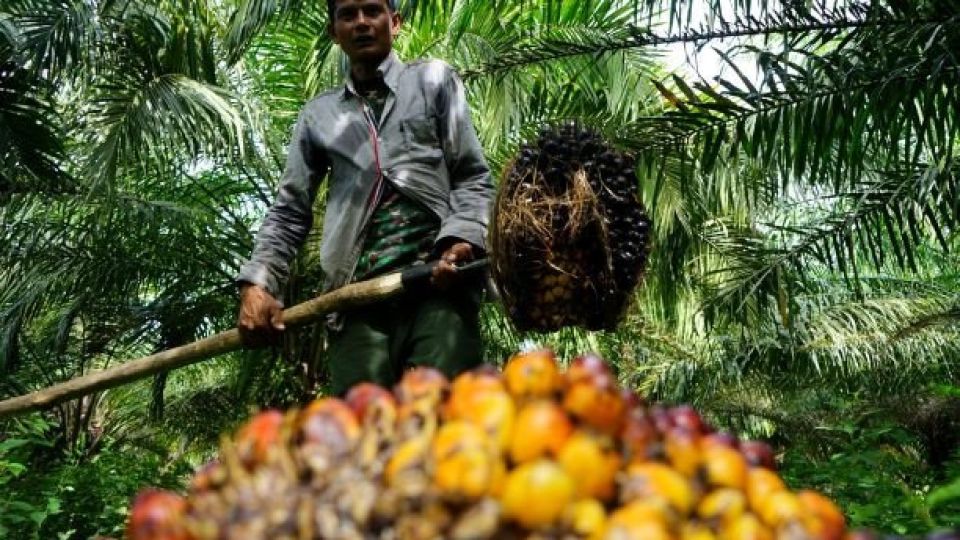June 7, 2023
JAKARTA – Indonesia and Malaysia, the world’s two largest palm oil producers, are in negotiations with their European Union (EU) counterparts, hoping the bloc will refrain from implementing stringent measures that may hammer the palm oil industry in its upcoming deforestation law.
Officials from the two countries met with leaders of the EU Commission and Parliament on May 30 and 31 to negotiate the terms of upcoming legislation called the EU Deforestation Regulation (EUDR), which will tighten rules on trading commodities associated with deforestation.
The talks were led by Indonesian Coordinating Economic Minister Airlangga Hartarto and Malaysian Deputy Prime Minister and Plantation and Commodities Minister Dato’ Sri Haji Fadillah Bin Haji Yusof.
Both are pursuing to resolve several issues, namely smallholders in the supply chain, acceptance of the national sustainable certification schemes, the law’s benchmarking system, geolocation, as well as land legality and traceability, according to the Council of Palm Oil Producing Countries (CPOPC).
“The EUDR will likely narrow smallholder farmers’ access to the EU market due to difficulties in fulfilling the requirements of proof of land legality and the geographical location of their plantations,” the Office of the Coordinating Economic Affairs Minister told The Jakarta Post on Sunday.
The office said Indonesia’s palm oil exports to the EU had declined to 5.3 million tonnes last year, down from 7 million tonnes in 2019. Similarly, the share of the world’s palm oil exports to the EU shrank to just 10.2 percent last year, down from 17 percent over the past five years.
Both Indonesia and Malaysia also expressed concern over the EU’s planned benchmarking system in the regulation, which assigns a level of risk related to deforestation and forest degradation.
The system will assign the categories of low, standard and high, with the latter resulting in more inspections and controls from the bloc to countries shipping their products to the region.
“The argumentation and methodology behind the benchmarking are unclear and would be very damaging to many countries if they were given the high-risk status,” the Office of the Coordinating Economic Affairs Minister said.
In a joint statement on June 1, both Indonesia and Malaysia urged the EU to classify them as low-risk countries.
Meanwhile, Indonesian Palm Oil Association (GAPKI) chairman Eddy Martono told the Post on Friday the industry was worried the EUDR would render the Indonesia Sustainable Palm Oil (ISPO) and the Roundtable on Sustainable Palm Oil (RSPO) obsolete.
Both are certifications pushed by producing countries attempting to attain sustainability in palm oil production and usage.
“If it proceeds this way, it will result in additional costs and it will clog exports,” Indonesian Palm Oil Association (GAPKI) chairman Eddy Martono told the Post.
“And if it’s also imposed on another producer country such as Malaysia, then it will disrupt the global supply of vegetable oil, which ultimately would put the world’s vegetable oil consumers at a disadvantage,” he added.
Yet EU representatives were on the same page with Jakarta and Kuala Lumpur over the concerns about smallholders, the Office of the Coordinating Economic Affairs Minister said.
The EU also welcomed the proposal of a consultative arrangement, in which the two biggest palm oil exporters hope their concerns can be accommodated in the next 18 months of formulating the implementing regulation, the office added.
But Palm Oil Farmers Union (SPKS) secretary-general Mansuetus Darto disagreed that the governments’ endeavor was aimed “for the good of smallholder farmers”, suggesting the governments might fight to accommodate the major palm oil companies’ objection.
He told the Post on Friday that the smallholders did not see the obligation to provide geographical locations a hindrance, saying some 60,000 smallholder farmers already had either coordinates or polygon – data containing the shape of a certain that which can be drawn from a map.
Darto said one part of the EUDR obliges firms to provide a fair price to farmers, similar to what is stipulated in Indonesia’s Agriculture Ministerial Regulation No. 1/2018, which mandates firms to absorb the production of fresh fruit bunches (TBS) from farmer cooperatives.
“But in reality, the majority of farmers have to sell to middlemen, who set the price arbitrarily,” Darto said, adding it often resulted in a wide price gap and many firms had been taking advantage of this situation by buying TBS from middlemen instead of farmer cooperatives. TOPICS :


